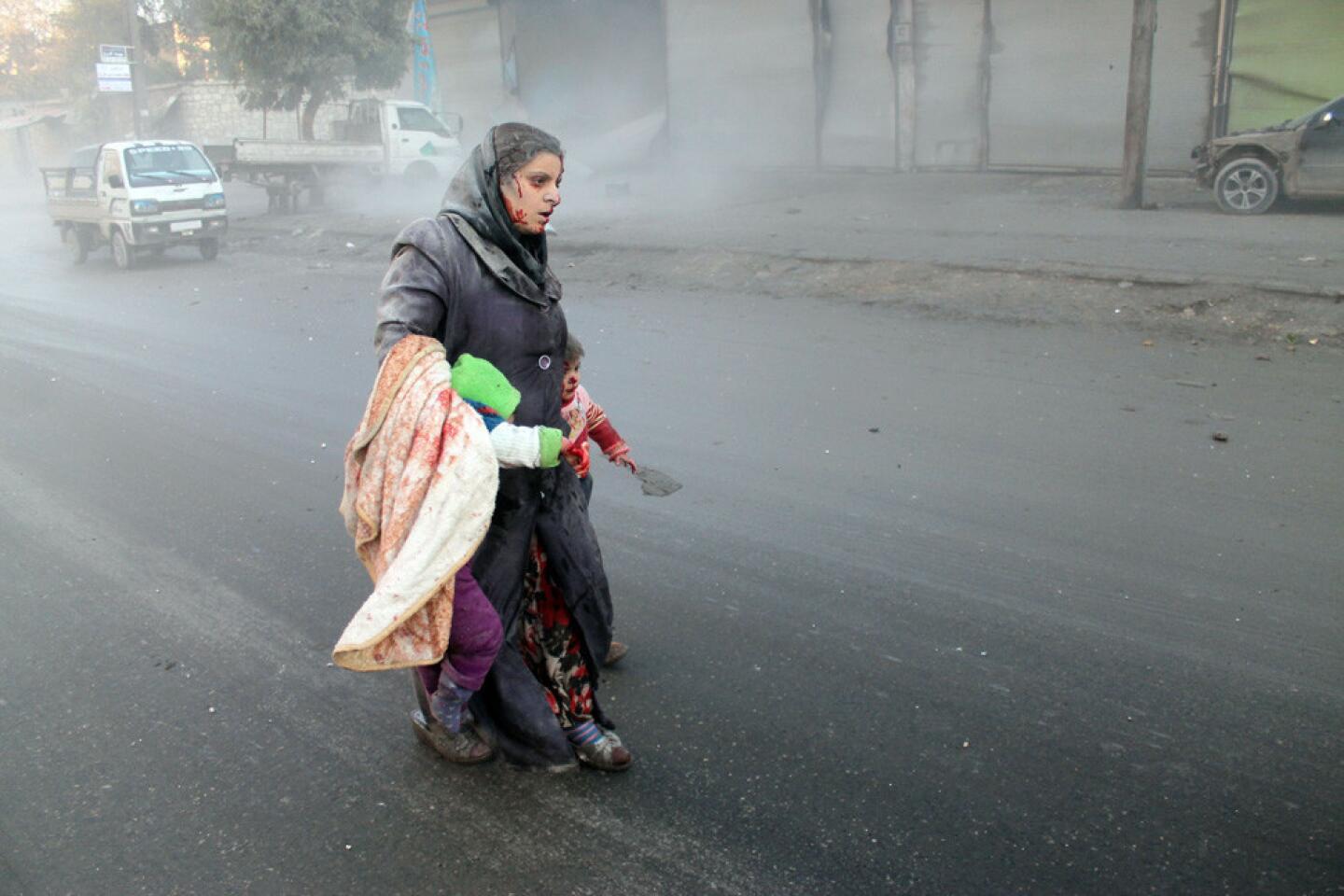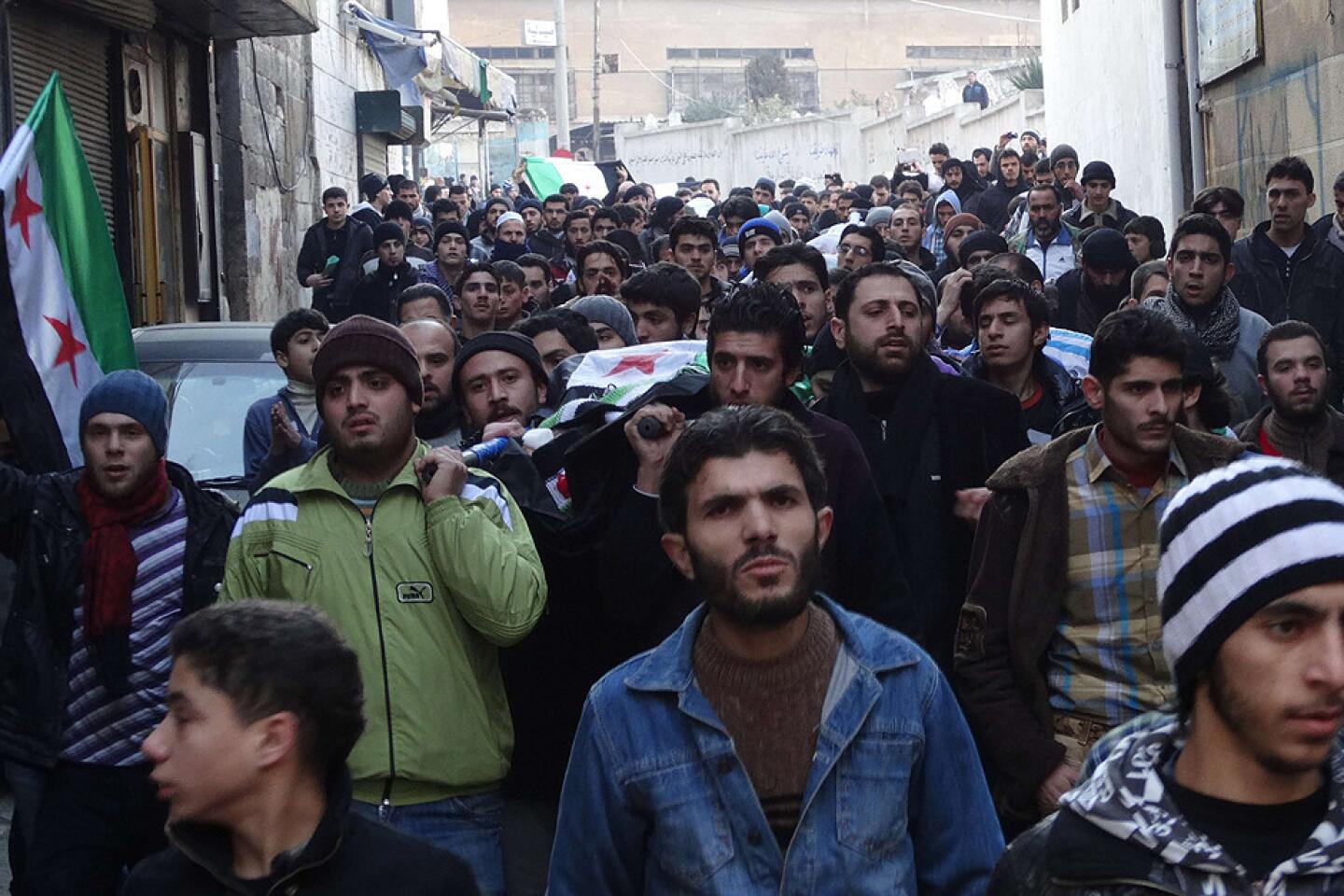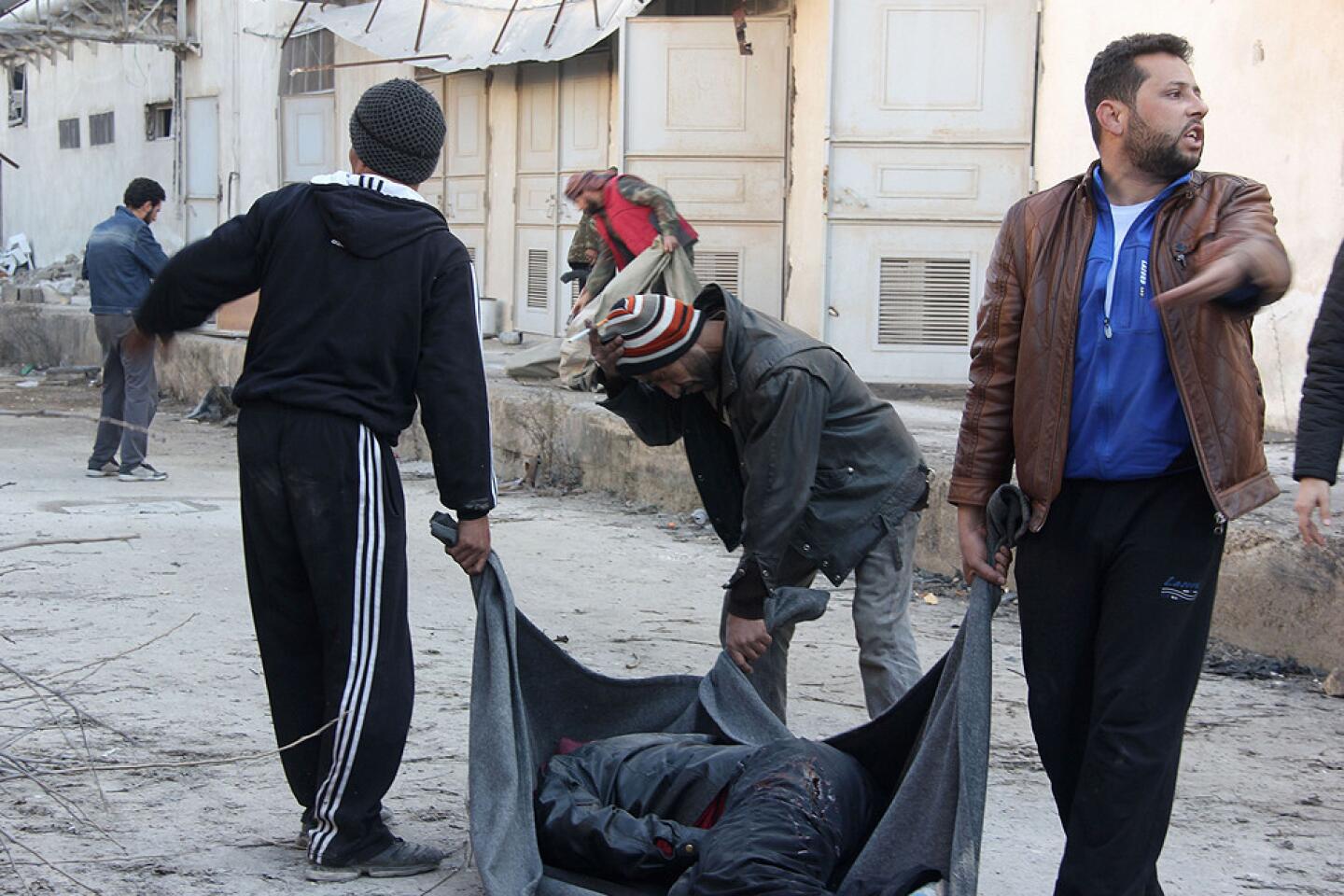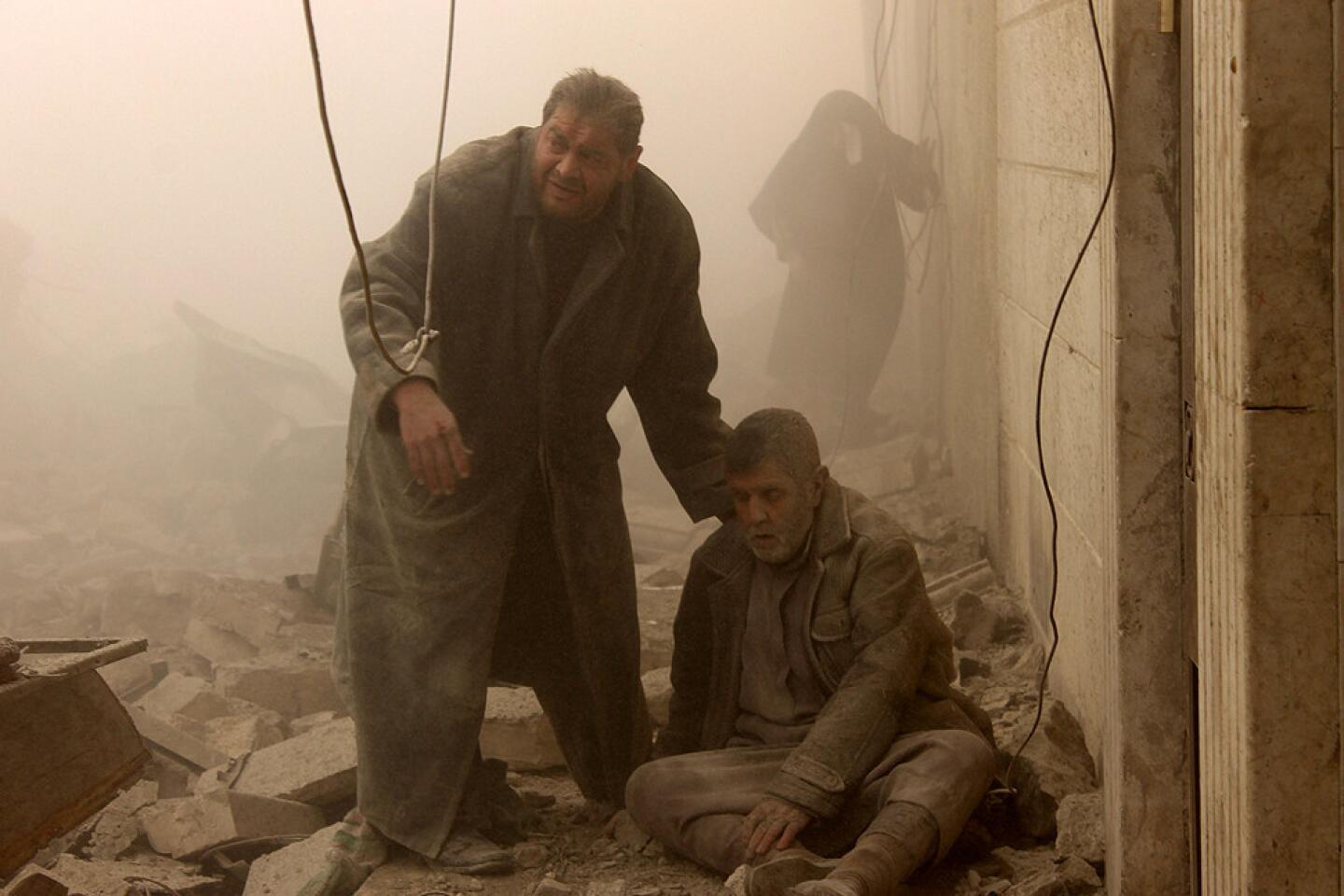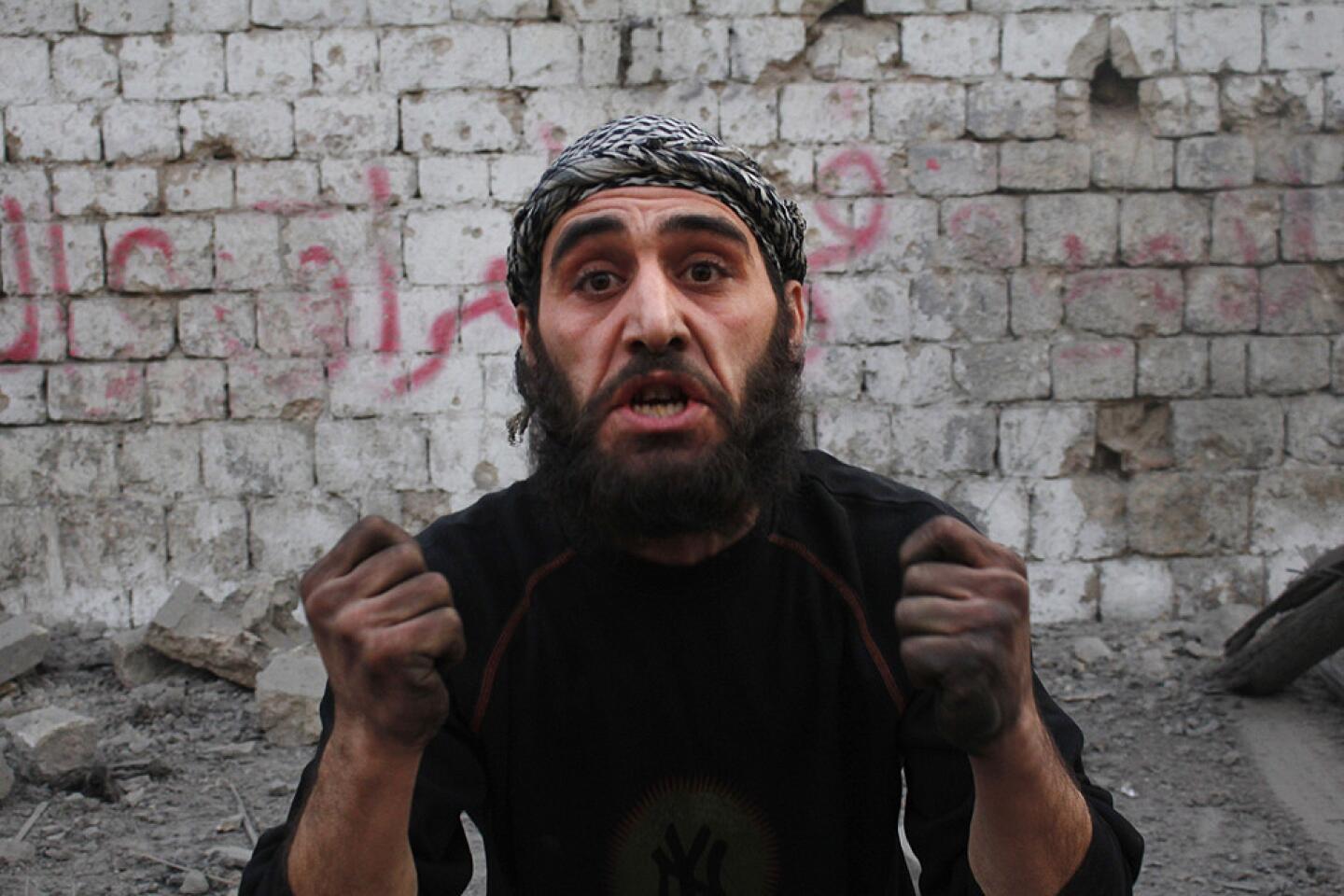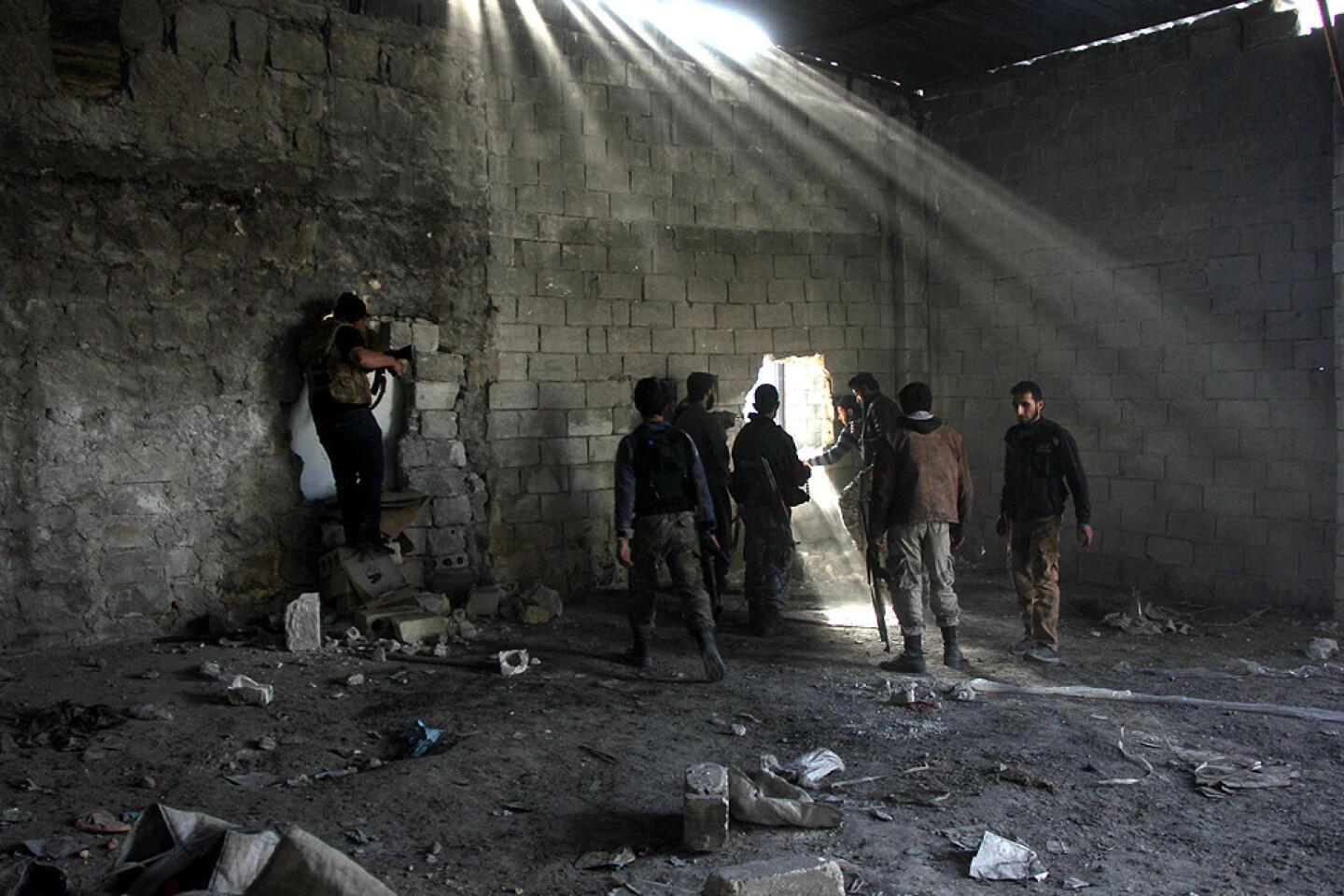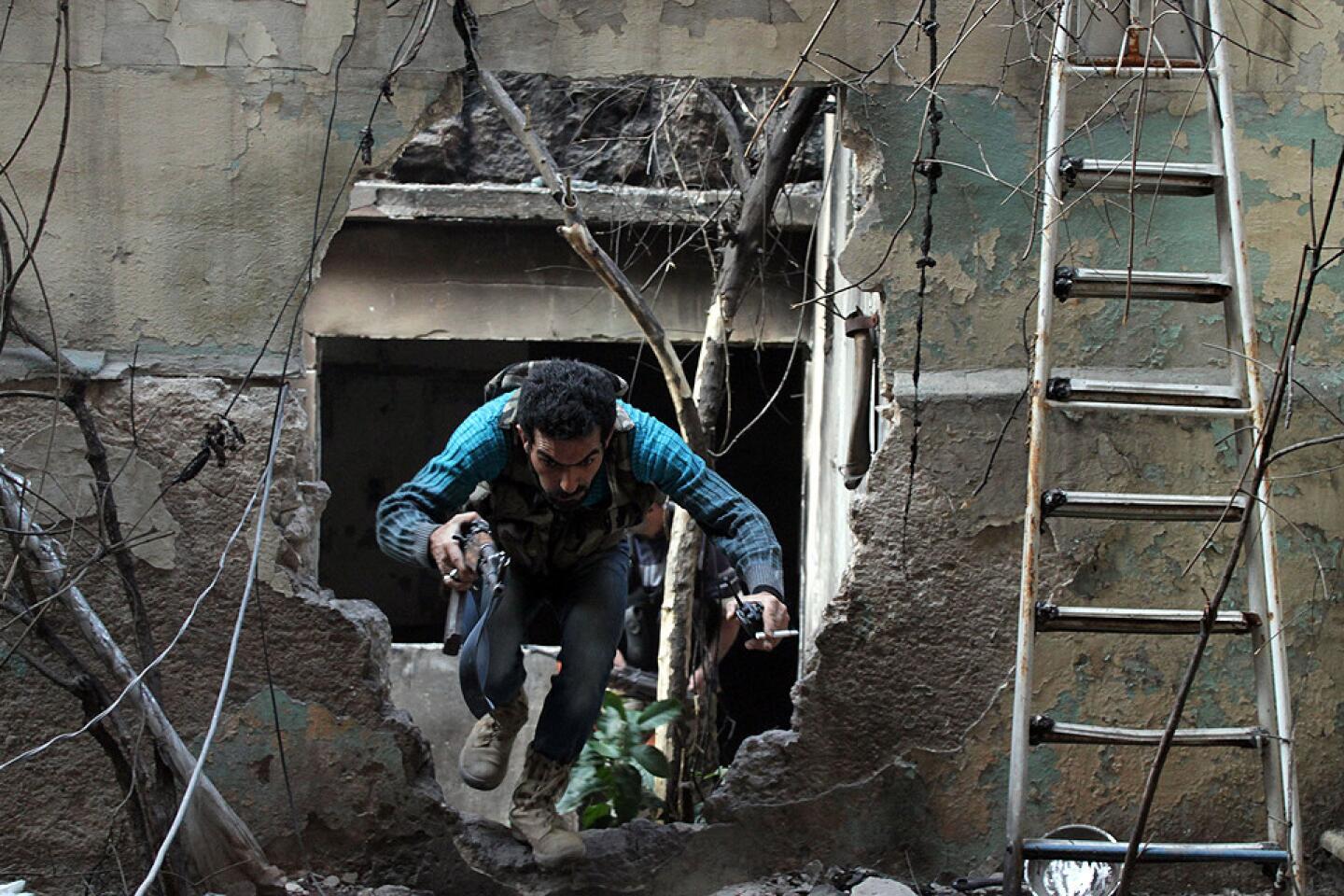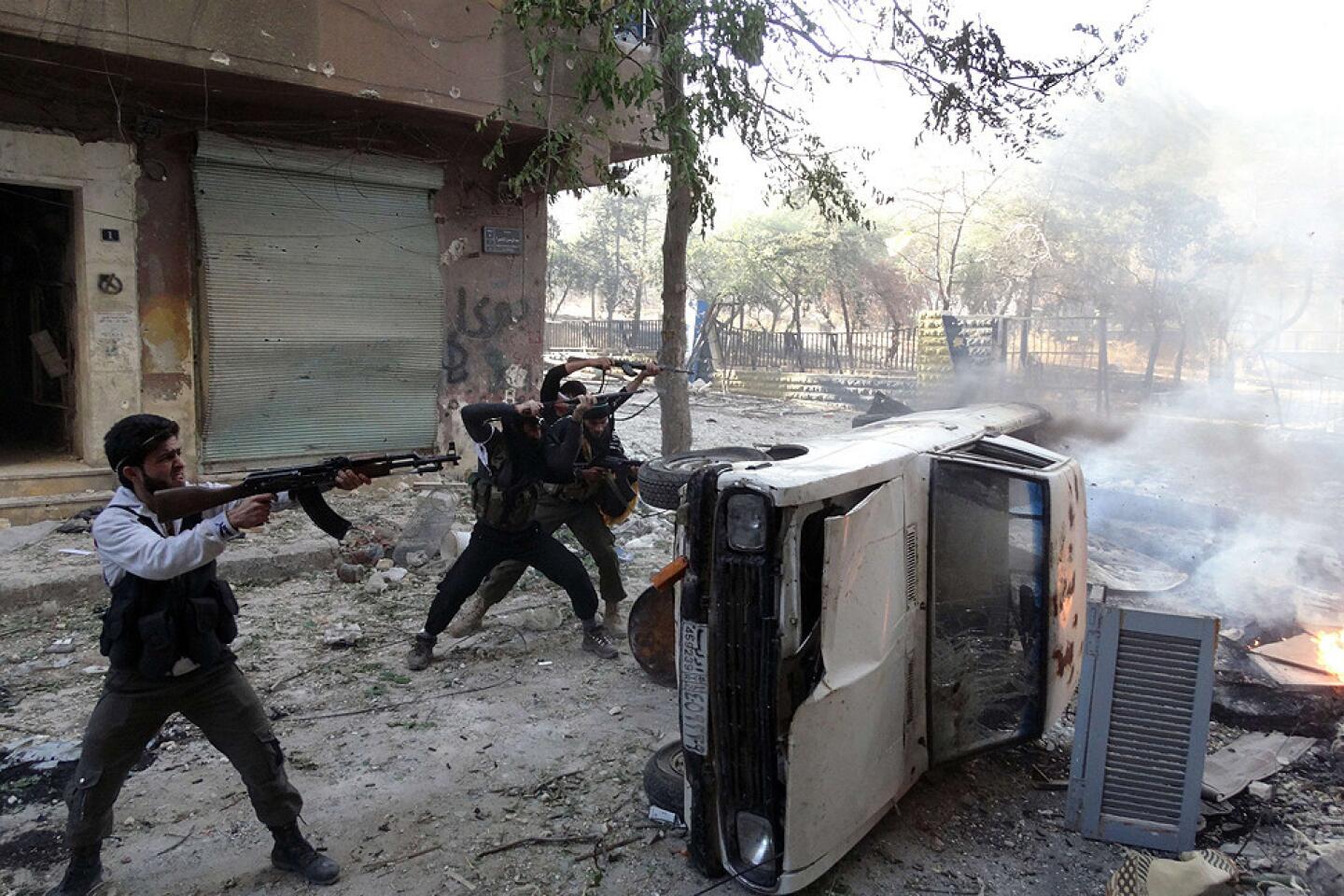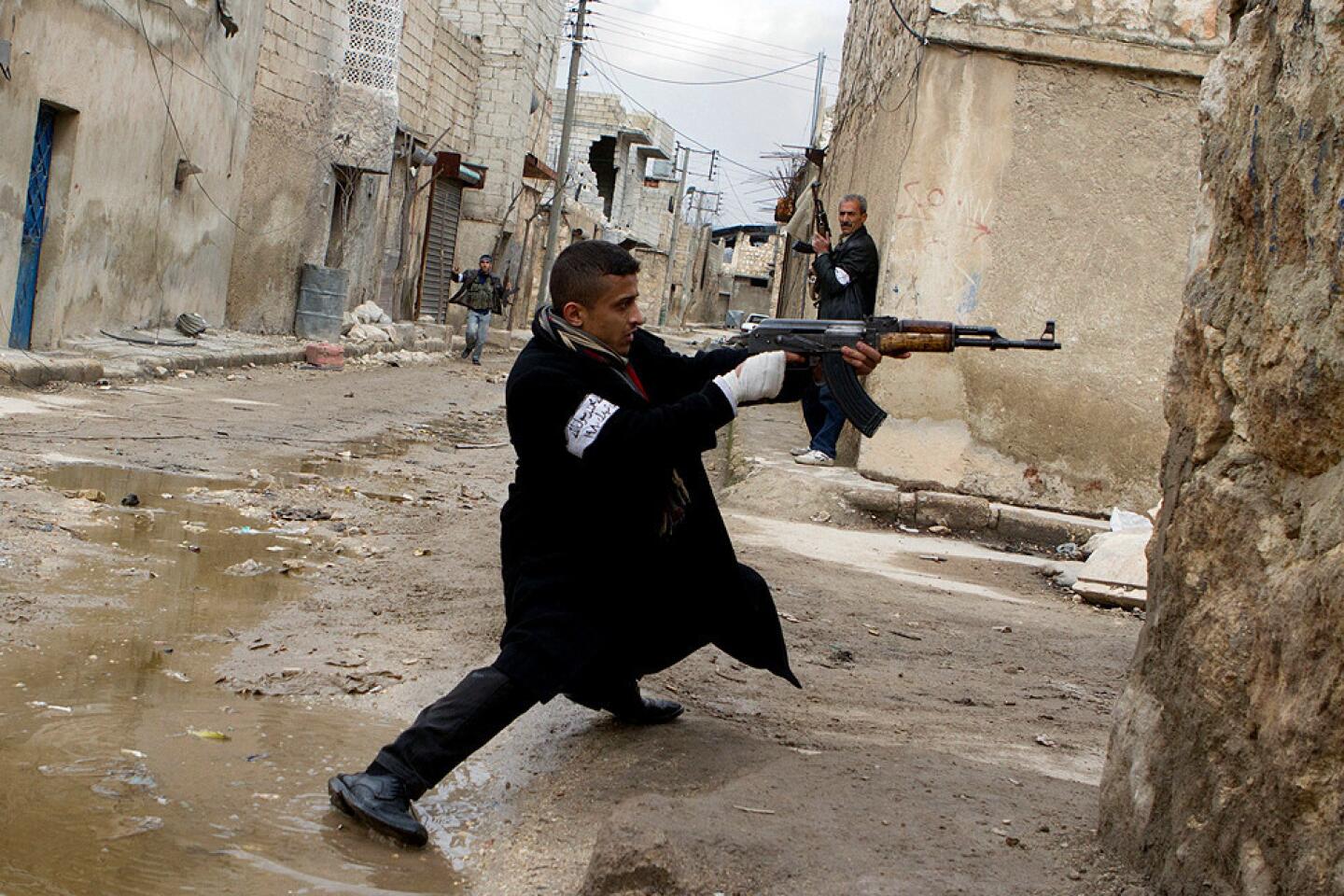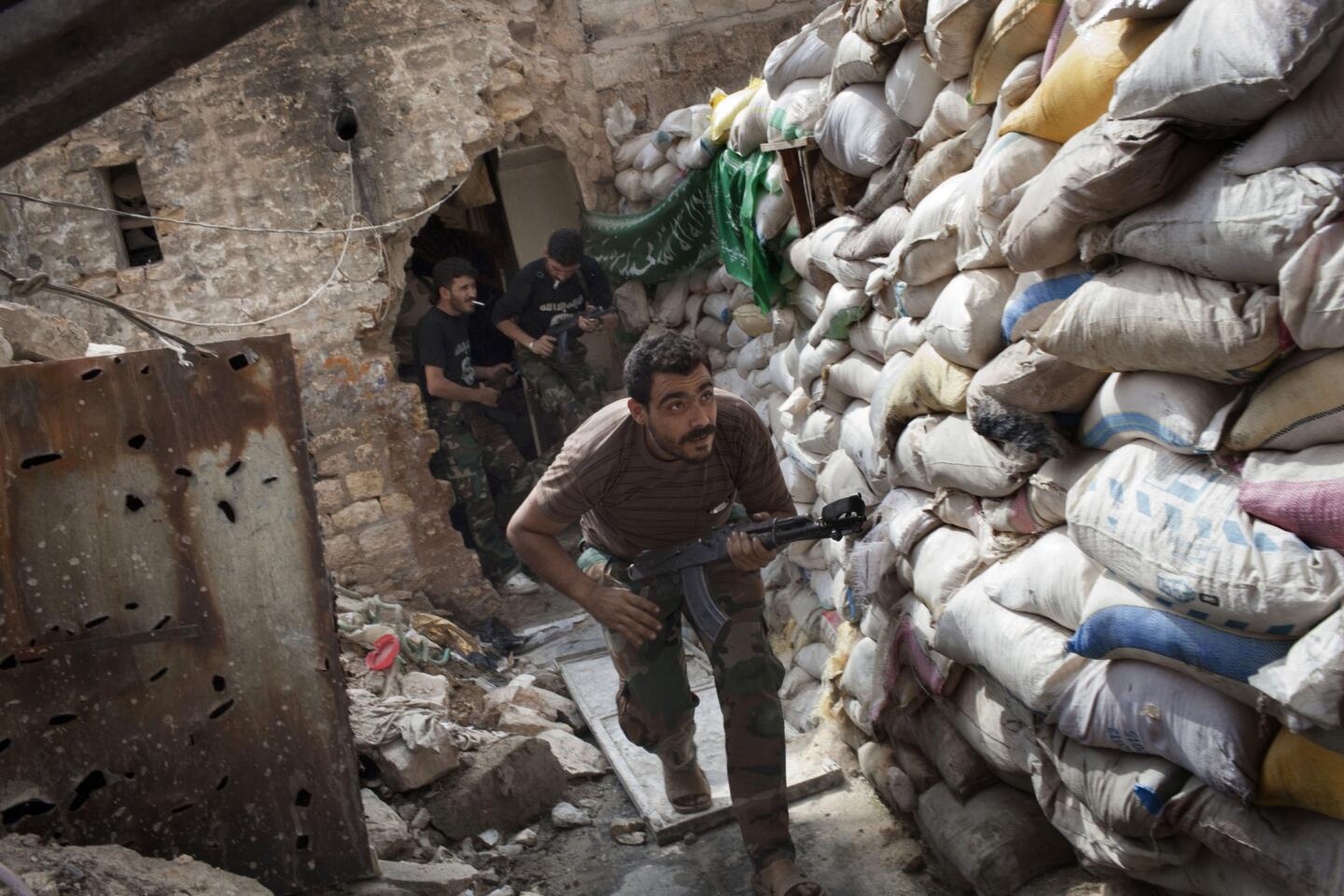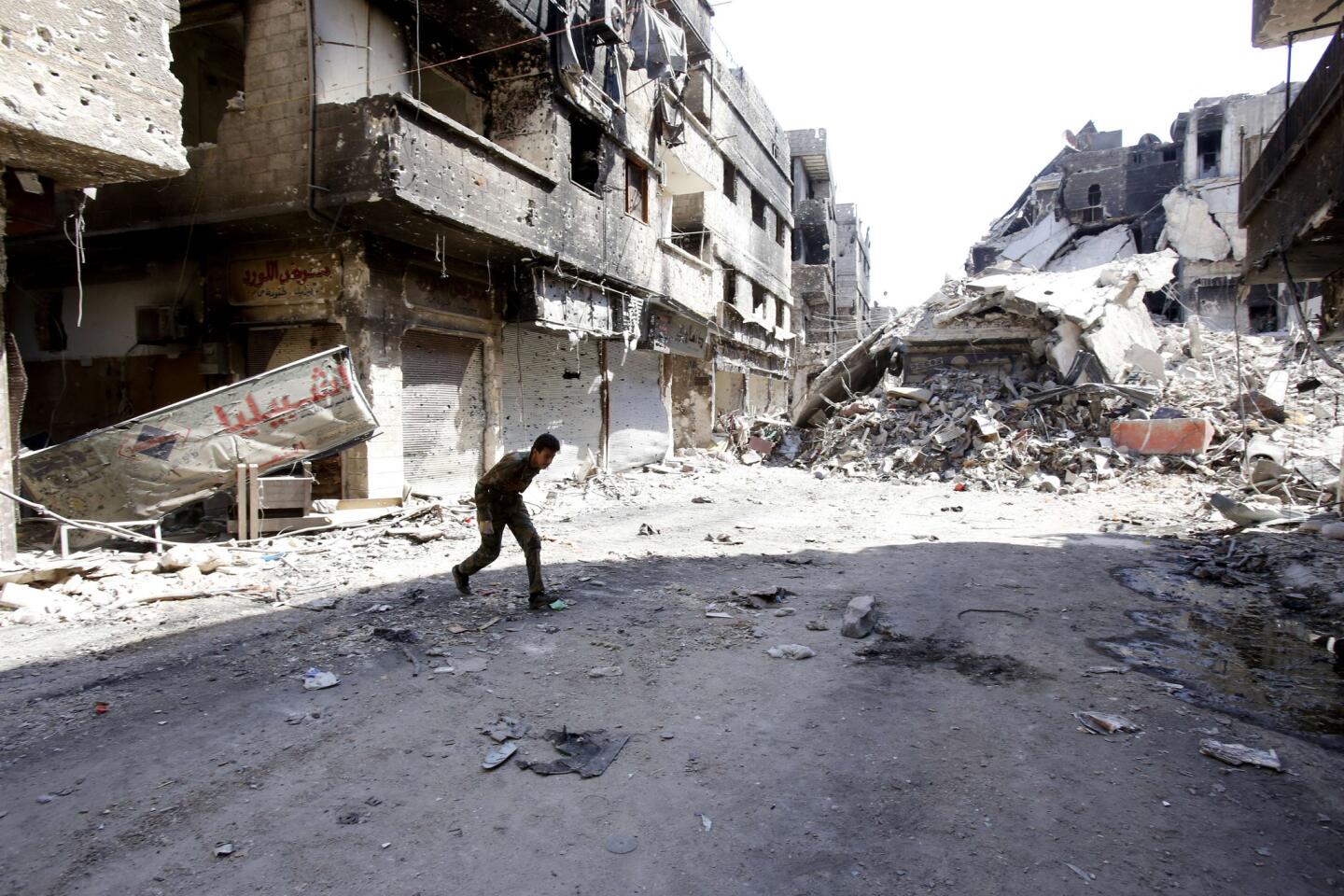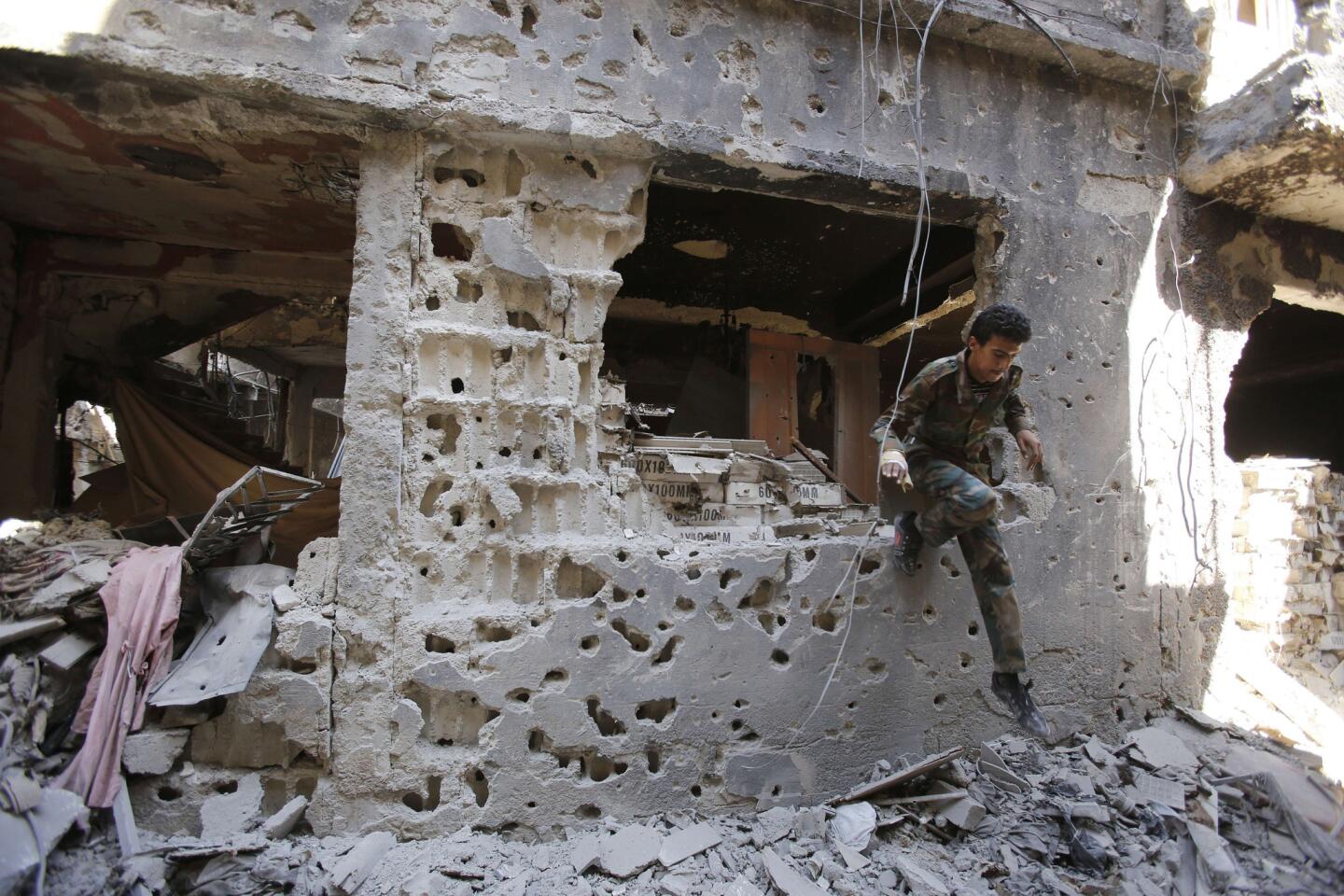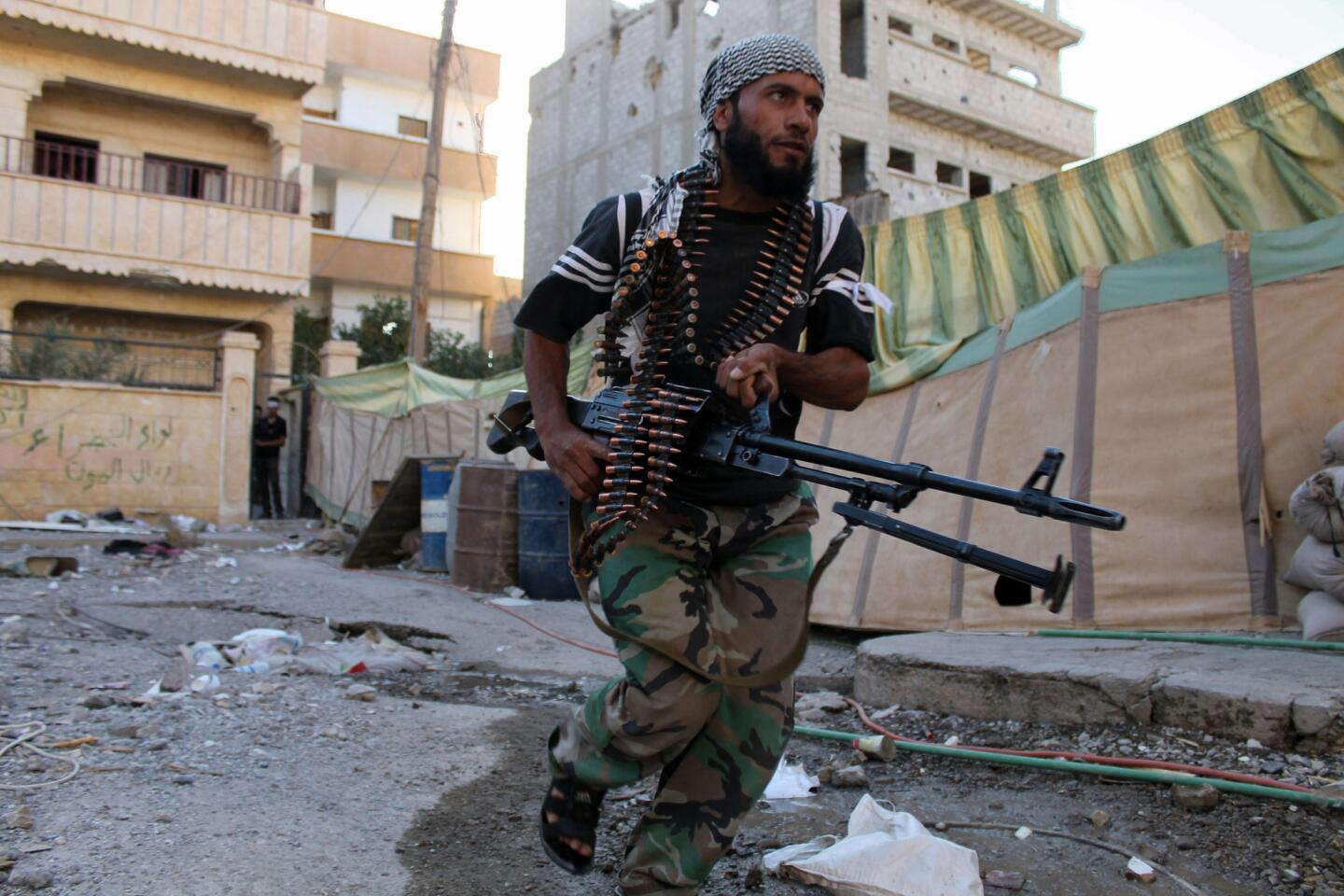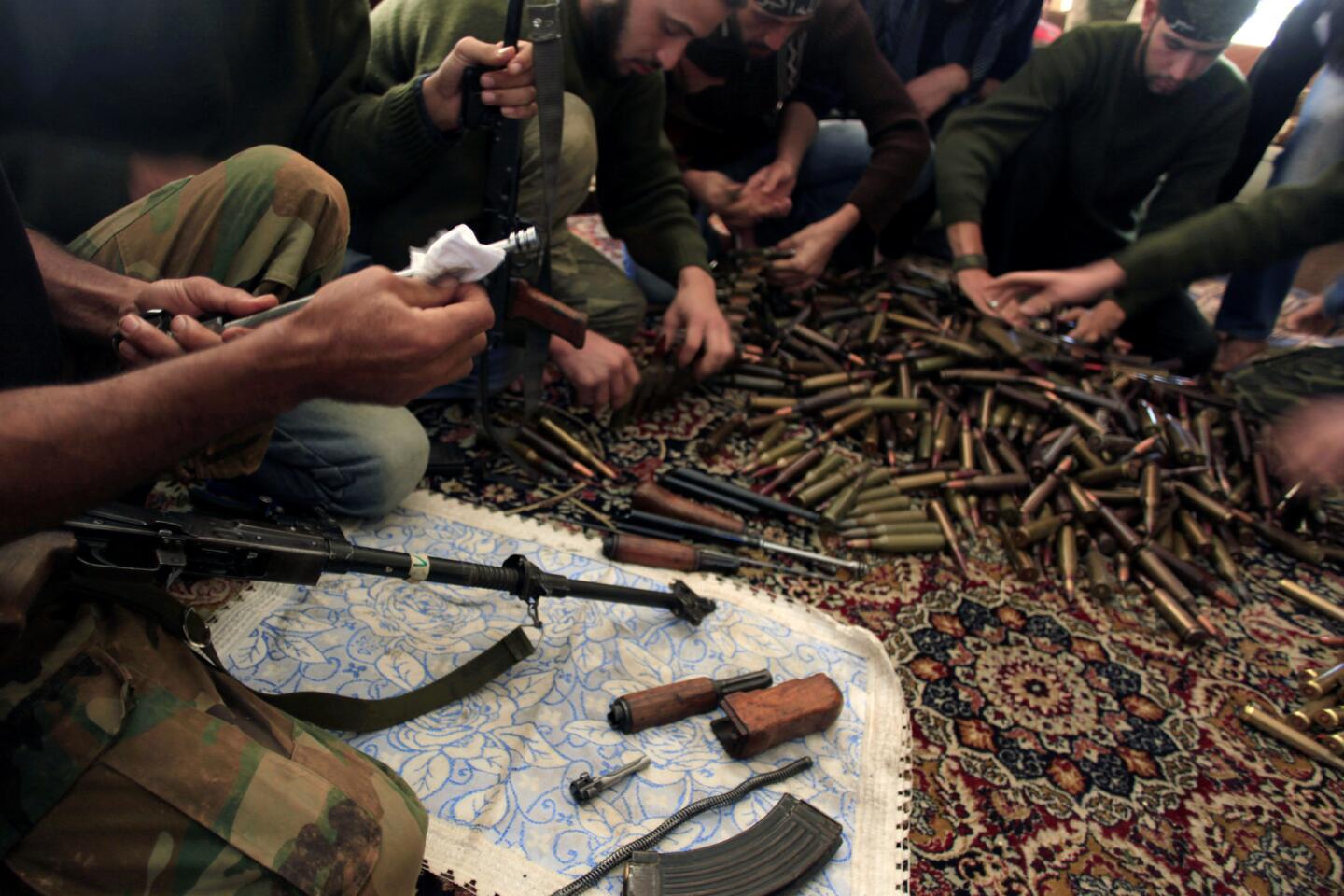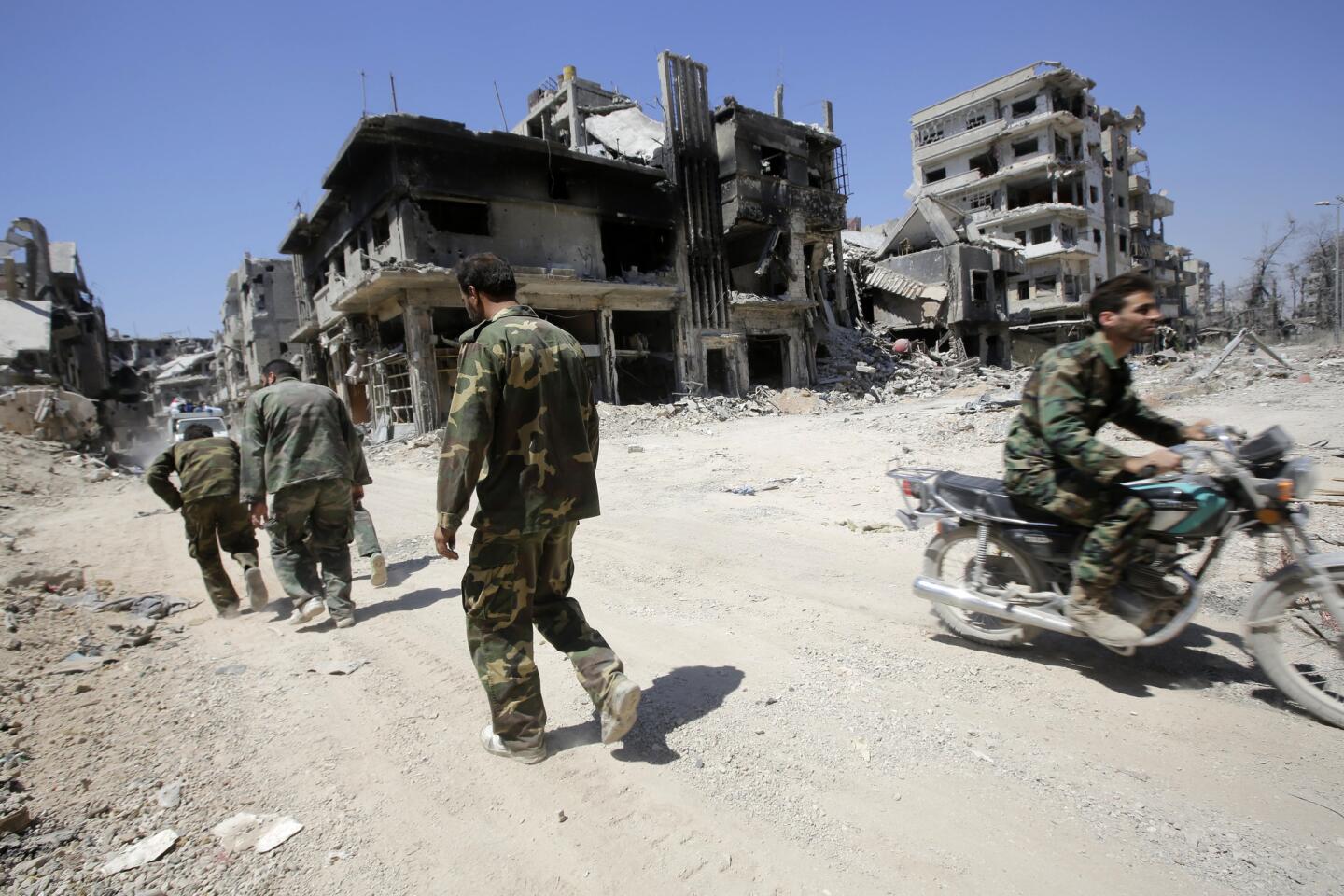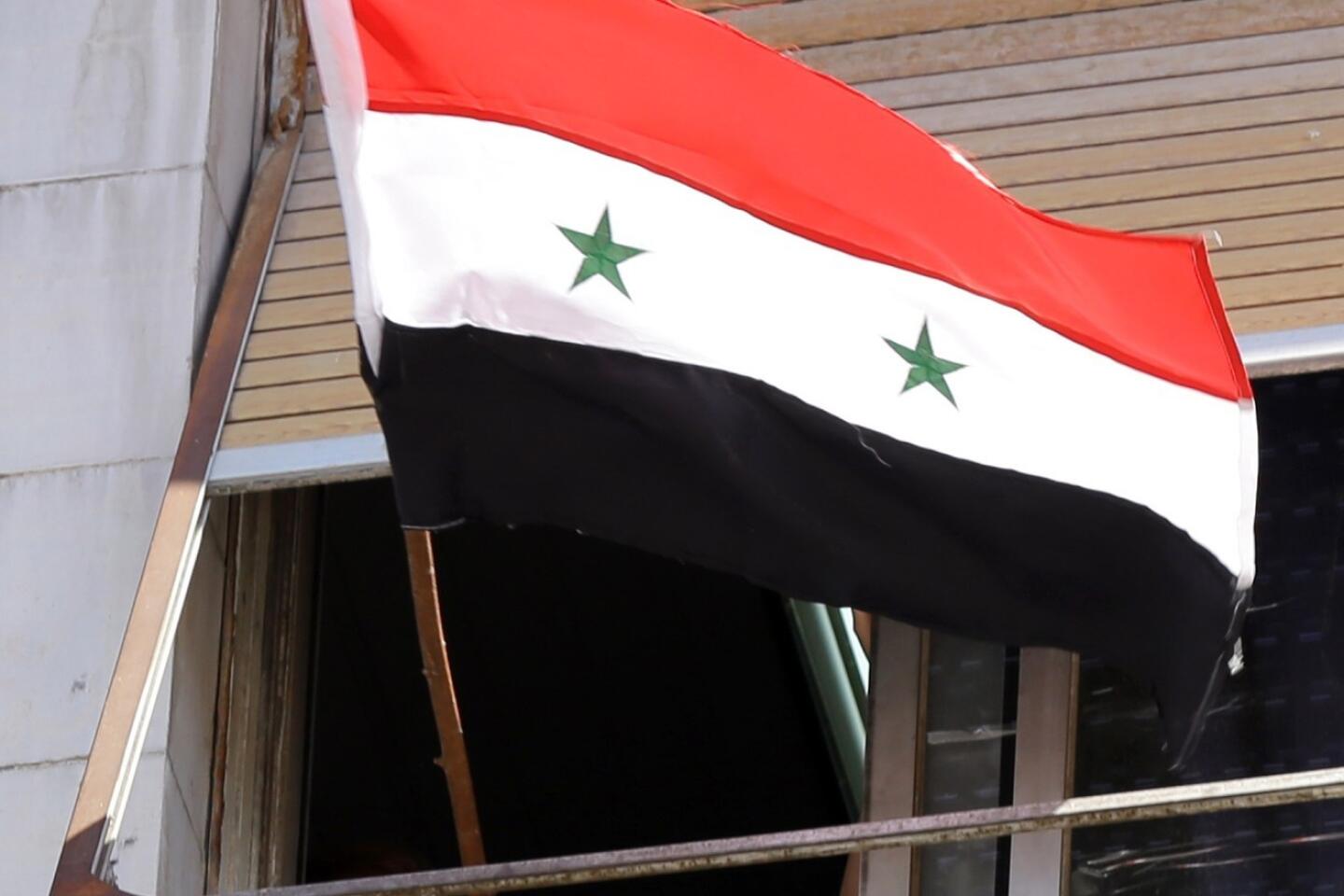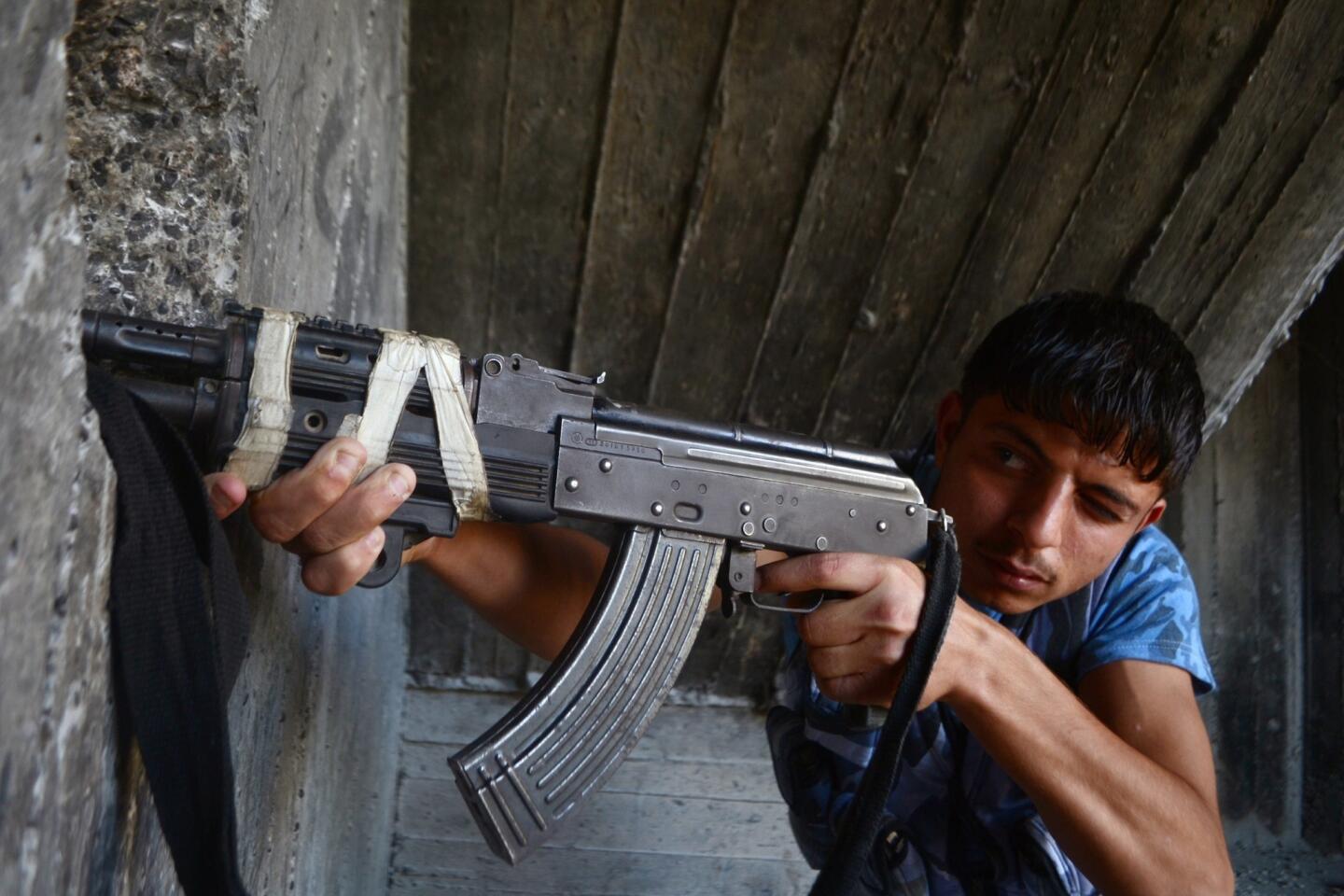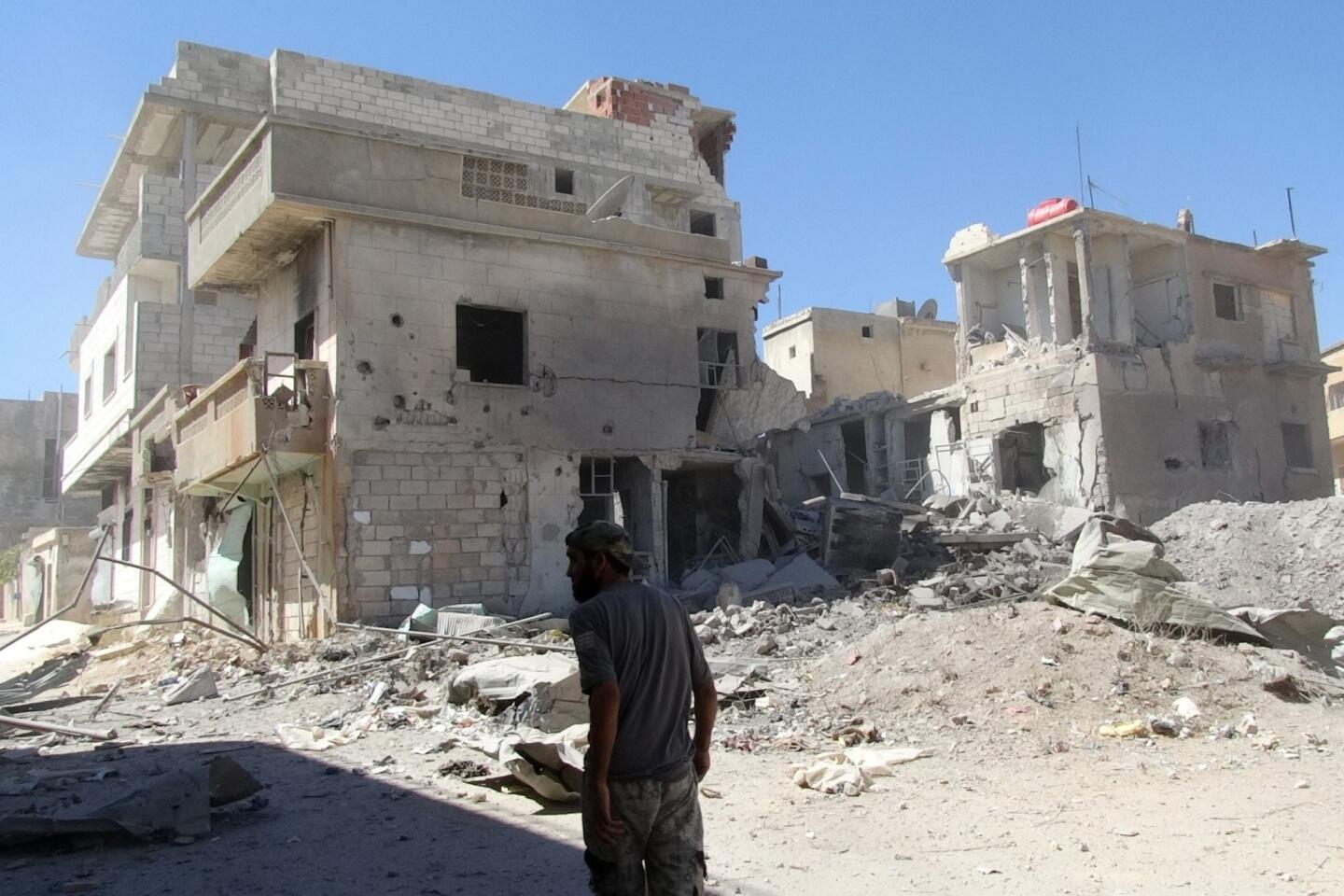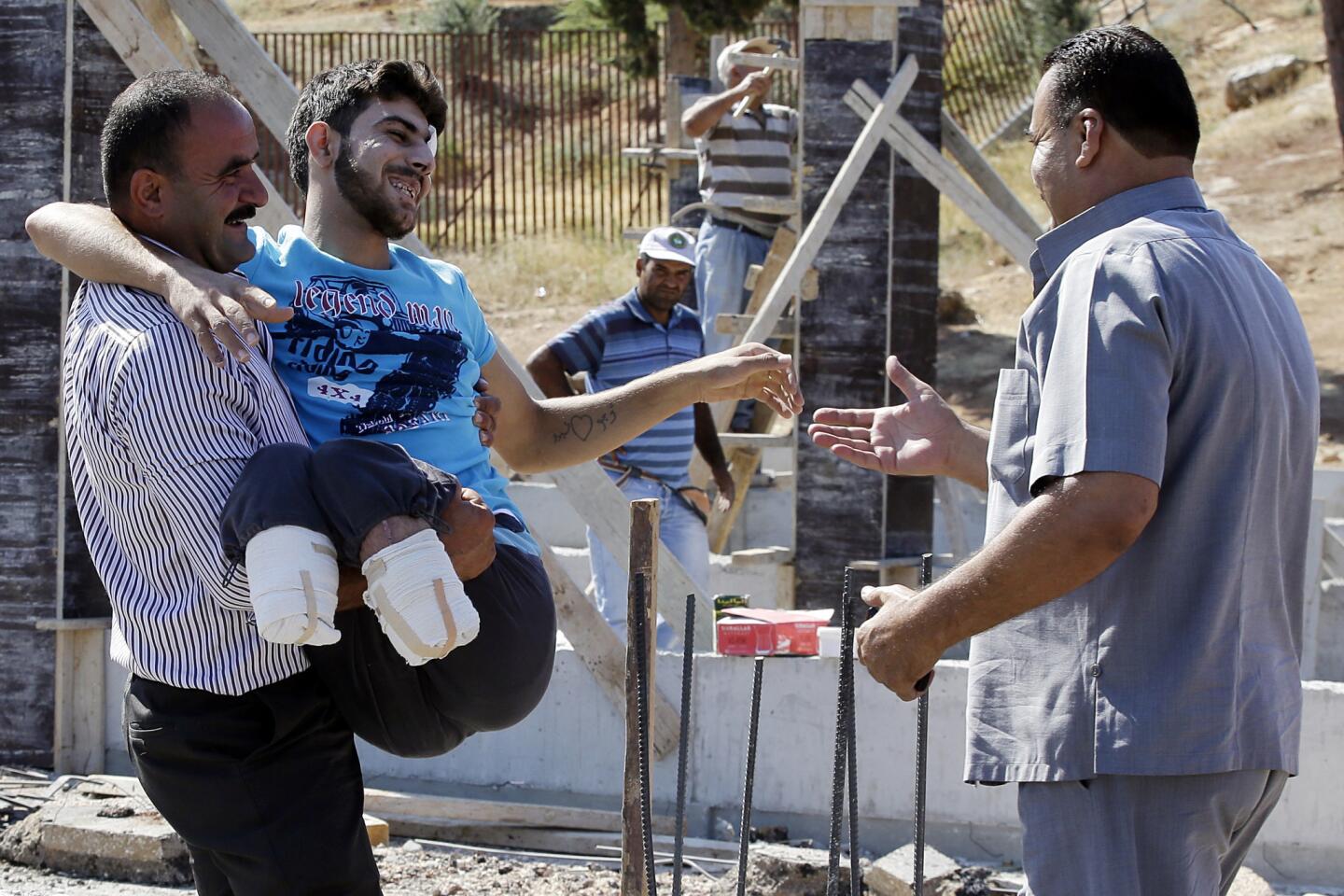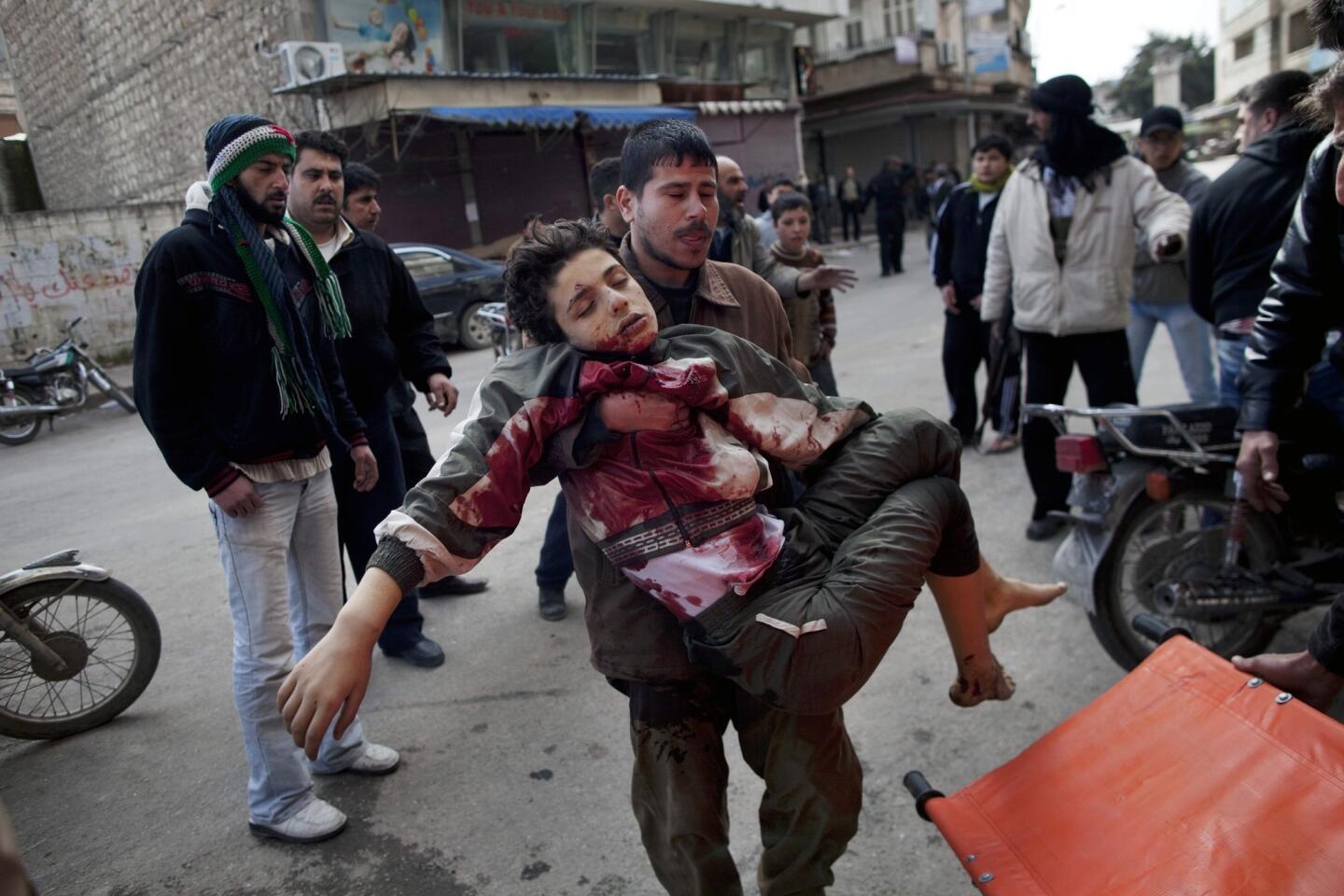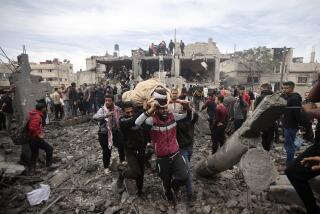Legal experts teach Syrian rebels to prevent human rights abuses
GAZIANTEP, Turkey â When law student Ibrahim Olabi concluded his presentation to a group of Syrian rebels, the fighters had some difficult questions concerning international humanitarian law.
Under the theory of collateral damage, they asked, was it permissible to starve civilians whom they had under siege along with government loyalist fighters in two Shiite Muslim villages north of Aleppo?
Olabi had to consult with human rights groups and law professors before eventually explaining that the law was conditional and unclear: Rebels are allowed to lay siege to military targets with some permissible collateral damage. At the same time, he said, civilians must be allowed to leave.
âThere are a lot of gray areas,â said Olabi, who recently formed the Syrian Legal Development Program to help provide legal training to rebels seeking to overthrow President Bashar Assad.
When opposition protests began in 2011, condemnations of human rights abuses were frequently leveled against Assad and his forces for gunning down peaceful protesters. But the uprising-turned-civil war is now seeing violations by the government and certain rebel groups alike.
Several organizations are training rebels in international humanitarian law in an effort to quell human rights violations and even war crimes by opposition groups. Olabiâs organization appears to be the only one offering training inside Syria, near the front lines.
Human rights abuses have received much attention in the Syrian conflict because of the large number of videos posted online showing gruesome episodes of violence.
Last week, Human Rights Watch reported that opposition fighters had killed at least 190 civilians and kidnapped more than 200, most of them members of the minority Alawite sect, during an offensive in August in the coastal province of Latakia. Two Al Qaeda-linked groups appeared to play a major role in the killings and kidnappings, but involvement by the mainstream Free Syrian Army is less clear, according to the report.
The United Nationsâ Independent International Commission of Inquiry on Syria recently reported an escalation of acts in defiance of international law, including summary executions, torture, hostage-taking and indiscriminate shelling of civilian homes by the government and some opposition groups.
The commission investigated nine massacres in which the perpetrators could be reliably identified. Assadâs forces were blamed for eight and rebels in the eastern province of Dair Alzour for the ninth.
One commission member told the U.N. Human Rights Council days earlier that the investigation had led to a list of suspected war criminals being compiled.
Olabi said the goal of his program was to prevent cases in which âfighters are prosecuted for war crimes after the revolution.â
Olabi, in his second year of law school in Britain, drew from a number of sources in putting together a curriculum and handbook. The material includes the Geneva Convention and Islamic law. He also consulted with human rights groups Amnesty International and Geneva Call, as well as his law professors.
Olabi said many in Syria do not know international law. Although there are many rebel fighters who defected from the military, most of the opposition troops were civilians before the conflict and know nothing about the rules of war.
âThey just took up arms to defend themselves; they are not scholars who have been studying this for ages,â he said.
Olabi also consulted with the group Lawyers for Justice in Libya, which faced a similar challenge in that countryâs 2011 war when civilians took up arms against government forces. The group sent out mass text messages listing the main principles of the laws of armed conflict.
Mehmet Balci, Middle East program director at Geneva Call, which conducts international humanitarian law training for nongovernment armed forces, said his organization had been working with Syrian opposition groups for almost a year.
The organization began a campaign called âFighter, Not Killer,â which covers international law and Islamic law, and distributed videos and Arabic-language booklets through the Syrian National Coalition and the Syrian Support Group, Balci said. Geneva Call has conducted four training sessions for rebels in neighboring countries, and is working with Olabi to train instructors who can continue the work across Syria.
Conducting sessions in Syria makes a difference in how the information is received, Olabi said, because the trainers face many of the same risks from government shelling and airstrikes.
Olabi has received guarantees from Aleppo Military Council head Col. Abduljabbar Aqidi to train the groups under his command.
The efforts are still in their nascent stages, and it will be hard to assess their effectiveness.
âThe problem with IHL training â and this was said by every single organization that I consulted â you canât measure the output in a way thatâs quantitative,â Olabi said. âIt is measured by the amount of decisions they make that donât conflict with international humanitarian law.â
The rebelsâ weak chain of command makes it difficult to enforce rules and laws, Balci said.
Opposition commanders have recently begun making more public statements regarding international law, an indication that they are increasingly aware of their obligations, Olabi said.
Though itâs too early to know whether the information is making its way onto the battlefield, there have been some positive signs about the human rights situation.
âItâs not worsening despite the intensification of the conflict and the level of the weapons used,â Olabi said.
More to Read
Sign up for Essential California
The most important California stories and recommendations in your inbox every morning.
You may occasionally receive promotional content from the Los Angeles Times.
